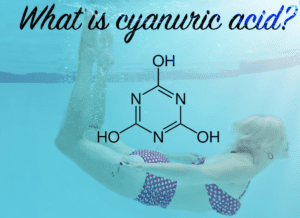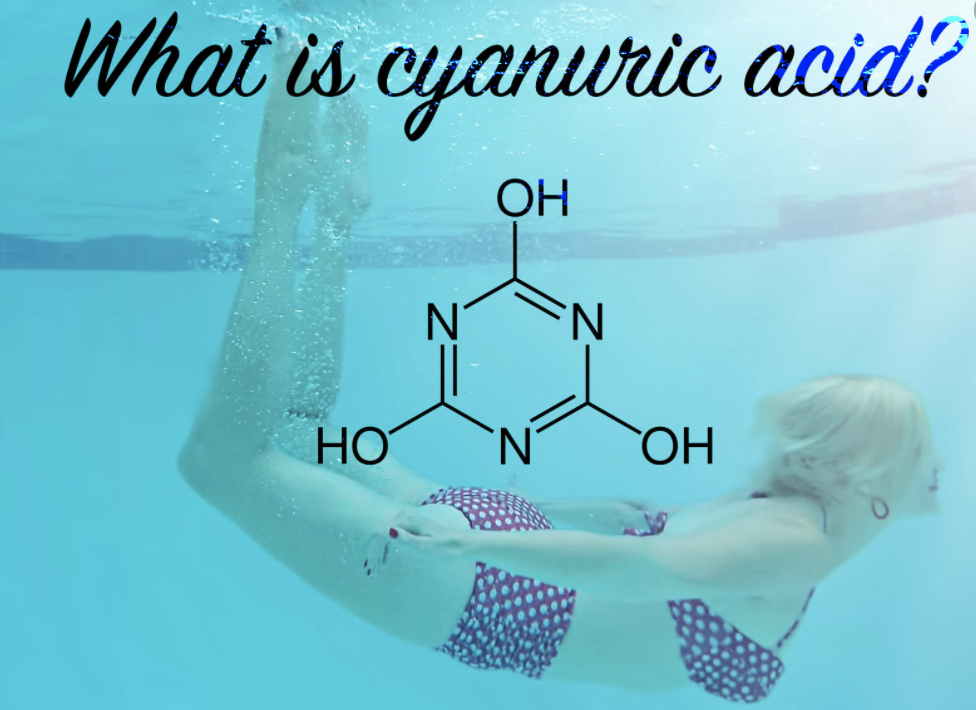What is CYANURIC ACID (CYA) and why does your pool water need it? If your pool is sanitized by the use of chlorine which is one of the most commons ways to maintain pool water then you will need CYANURIC ACID (TDS) in your pool. Think of it as a sun block for the chlorine. If your pool is outside and exposed to the sun’s ultraviolet rays these rays can decompose the free chlorine in your pool water. Having the correct level of CYA in your pool water will greatly help slow the decomposition of the chlorine.
The recommended level of CYA is 20‐50 ppm; levels over 100 ppm are too high. You can add CYA via just adding it manually to your pool or you might find that the form of chlorine that you’re using has it already within it. If the type of chlorine that you’re using has it within it then you should be care full to not over use that product encase levels become too high. Common forms of chlorine that have CYA within it are chlorine tablets, Dichlor and Trichlor these are all granular-powder or hard forms of chlorine. Liquid chlorine generally does not have CYA within it. Cyanuric acid (CYA) is also called stabilizer or conditioner.

Cyanuric acid
Chemical compound
If you find that the chlorine level in your pool is going down quickly it could be the cause of a low CYA level. The same can be caused by having too high a level of CYA so it’s important to keep a close eye on the level of CYA in your pool water.
If you start to notice purple marks appearing on the surfaces of your pool like the plaster or tile then this is in an indication of high CYA. There are a few products on the market that say that they can lower the CYA level but they have mixed reviews. A for sure way to bring down the level of CYA in your pool is to partially or fully drain your pool. It could also be done via a Reverse Osmosis filtration of your swimming pool water is now possible by using a portable RO system.
If you have a salt system on your pool that generates the chlorine then you will still need to ensure that the CYA level is correct. You can test the level of CYA in your pool water via the use of test strips or the liquid drop testing system or your local pool store likely does free water testing. We hope this helps with your understanding of Cyanuric acid (CYA) and if you find that it’s too high and want it reduced let PoolStar know and we shall be happy to help.

